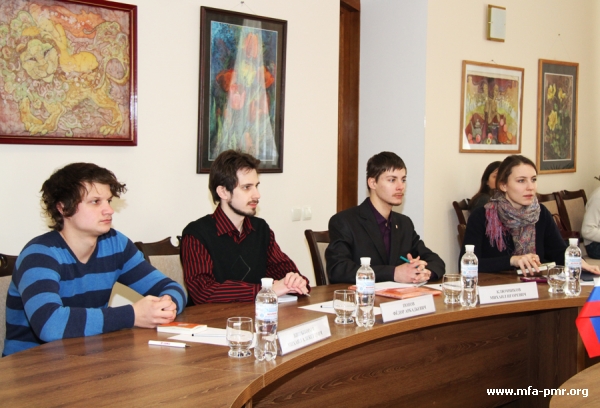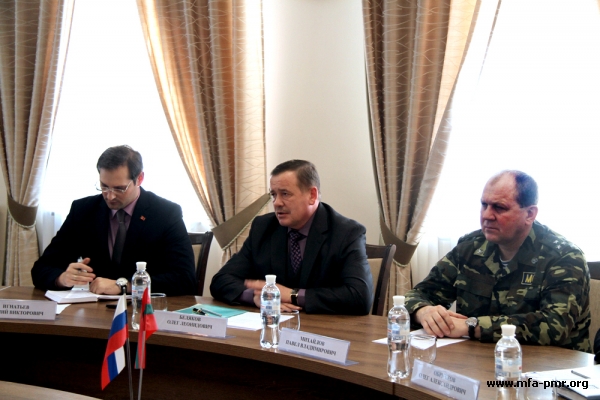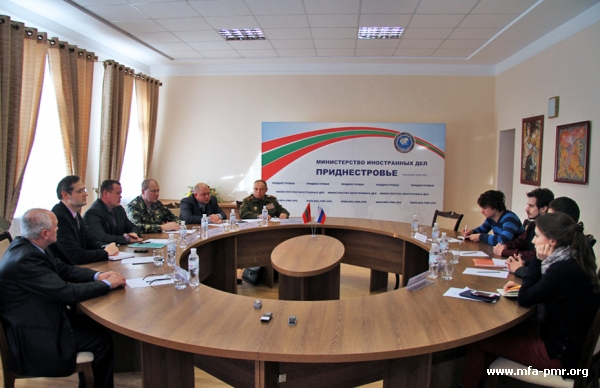Today, Foreign Ministry of PMR hosted the meeting between Pridnestrovian representatives of the Joint Control Commission (JCC) and the delegation of the Faculty of Geography of M.V. Lomonosov Moscow State University headed by a research worker of the MSU Faculty of Geography, Cand. Sc.(Geography) Fedor Popov. The delegation of the Joint Control Commission (JCC) included the JCC co-chairperson from Pridnestrovie Oleg Belyakov, representative of the Committee for State Security Vasiliy Vakarchiuk, representative of the Ministry of Internal Affairs Oleg Obruchkov, acting Senior Military Commander of the Joint Peacekeeping Forces Vladimir Bugaev, and representative of the Ministry of Defense of the PMR Pavel Mikhailov. Foreign office in the JCC from Pridnestrovie was represented by Deputy Foreign Minister of PMR Vitaliy Ignatiev.
As previously reported, these days the MSU group of researchers is staying in Pridnestrovie in the framework of the winter “students' expedition”, the purpose of which is to study trans-border ties between the Pridnestrovian Moldavian Republic and the Republic of Moldova.
Russian researchers got objective first-hand information on the history of the Moldo- Pridnestrovian conflict, on the genesis and special aspects of the peacekeeping operation on the banks of the Dniester River, and on the current situation in the Security Zone.
In the course of the talks with young scientists, Leonid Belyakov emphasized that during the tragical period for the Republic, when blood was flowing on the Pridnestrovian land, it was Russia who stopped Moldovan aggression against Pridnestrovian people and appealed the conflicting parties to cease the fire. According to him, what the Russian Federation is doing today on the banks of the Dniester River in the framework of the peacekeeping operation is a meaningful experience, which must take a rightful place in the modern international peacekeeping system. “There is no alternative to this peacekeeping operation. Blood has not been shed on this land for more than 20 years, people have not been killed, there have been no serious armed conflicts, there have been no open confrontation, and the negotiation process is going on,” – stated the JCC Co-Chairperson from Pridnestrovie.
At the close of the meeting, answering journalists' questions, the head of the delegation Fedor Popov highly appreciated the Russian peacekeeping experience on the banks of the Dniester River, emphasized its uniqueness and effectiveness. “The fact that Pridnestrovie actually exists as a fully-fledged state while in conflict, and the Russian peacekeepers' colossal role for the Republic make the situation unique,” – he said. In the course of the visit to Pridnestrovie, the representatives of the M.V. Lomonosov MSU received information that will be used in the framework of further research activities by the young scientists in the Russian Federation and will be presented to the relevant academic University audience.










